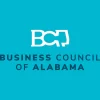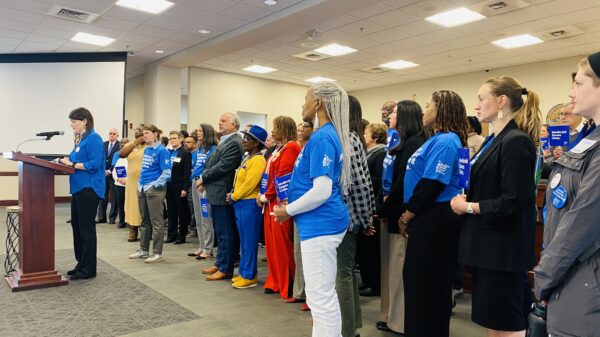By Bill Britt
Alabama Political Reporter
The greatest challenge before the Alabama State Legislature when it returns in February is not the budget, schools or Medicaid. It is the slight of hand chicanery used to undermine the State’s ethics laws.
Since the conviction of former Speaker of the House Mike Hubbard on 12 felony ethics violations, a coordinated effort has been underway to weaken those laws, with particular focus on how they identify a “principal.”
As defined in Section 36-25-1(24) a principal is, “A Person or business which employees, hires or otherwise retains a lobbyist. A principal is not a lobbyist, but is not allowed to give a thing of value.”
Among Hubbard’s felony violations was “receiving a thing of value from a principal.” In his case, Hubbard received money and/or work product from Will Brooke, Rob Burton, Jimmy Rane and investment firm Sterne Agee, all powerful business leaders or entities who employ lobbyists.
During their testimony at Hubbard’s trial, each man tried to convince the jury they were not principals, but the 12 women and men who found Hubbard guilty of receiving a thing of value didn’t buy their reasoning.
Mere days after the Hubbard trial concluded with a quick verdict, attorneys with Maynard, Cooper and Gale were at work deconstructing it. Ted Hosp, Jay Mitchell, Peck Fox and Edward O’Neal provided an analysis, which argued that the judge, jury and prosecutors from the State’s Attorney General’s office broadly interpreted portions of the ethics laws, as related to the guilty verdict in the Hubbard case.
In their analysis, the prosecution and jury broadly interpreted the term “principal,” as well as the phrase “thing of value,” and expanded a conflict of interest beyond what they believed was the legislative definition.
Less than six months after Julius Caesar’s assassination, and in the same year as his death, Cicero wrote the last work of his life: De Officiis, or in English, On Obligations. In it he wrote, “Injustice often arises also through chicanery, that is, through an over-subtle and even fraudulent construction of the law.”
As with the Hubbard trial, individuals used deception through alternative interpretations of the law for a particular end.
Cicero also noted in On Obligations that, “we must not treat the unknown as known and too readily accept it, and he who wishes to avoid this error (as all should do) will devote both time and attention to the weighing of evidence.” In other words, don’t accept a thing on face value, dig into what is being said or dare to discover its true meaning. Cicero says, examine the facts to find the truth.
And finally, he wrote, “of all forms of injustice, none is more flagrant than that of the hypocrite who, at the very moment when he is most false, makes it his business to appear virtuous.”
Since Hubbard’s conviction, lawyers, at the behest of the business elite, are sowing confusion to weaken the ethics laws. A prime example was the “show” ethics hearing in December, when ethics commissioners Jerry Fielding, Butch Ellis and Charles Price reversed an earlier unanimous advisory opinion concerning Friends of McCalla.
On September 1, 2016, the Commission issued advisory opinion 2016-24 on the Friends of McCalla, which it believed clarified the question regarding public officials soliciting lobbyists and principals for contributions to a charitable organization, operating as a 501(c)(3) nonprofit. This opinion was used to fumigate widespread panic among Alabama’s charitable organizations, allowing lawyers for the business interests to present an over-subtle and fraudulent construction of the opinion, contrary to what was written and unanimously approved by the Ethics Commission in Friends of McCalla.
Instead of devoting time and attention to weighing evidence, Commissioners Fielding, Ellis and Price kowtowed to a band of lawyers who tricked charities into being a stalking horse for their corporate masters. Hubbard’s former criminal defense attorney, J. Mark White, appeared to be impresario over the affair while being aided by Hosp and other well-heeled attorneys who had roles in Hubbard’s case.
The original opinion in Friends of McCalla was far from ambiguous or dangerous, as former Alabama Supreme Court Justice Sue Bell Cobb claims in an Op-ed for al.com. In her opinion piece, Judge Cobb says, “I joined representatives of other nonprofits and several legal experts in telling the Commission that its initial decision [in Friends of McCalla] left many Alabama charities too frightened to ask for donations and many donors too frightened to give.” She further states, “The impact was real and potentially devastating for many entities that serve their communities, but particularly, the vulnerable and poor.”
In the McCalla opinion the commission found, “Public officials and employees and their families are permitted to solicit donations to Friends of McCalla from principals as long as the purpose for doing so is to benefit the public, and as long as funds raised will not provide any personal gain to the public official, public employee, their family or a business with which they are associated. If they are members of the Board, they may solicit on Friends of McCalla’s behalf, unless they are paid for Board service or derive any other personal gain from service.”
What is so dire in this opinion that would inspire the former Chief Justice to opine on al.com about its unintended consequences?
Cobb chooses an interesting example of a police officer’s wife seeking a charitable contribution from the Alabama Farmers Federation. “The wife would be in trouble not because of any coercion on her part or because the Farmers Federation needed a favor from the Police Department. She would be in trouble simply because the Farmers Federation has a lobbyist, and she is the spouse of a public employee.”
Cobb continues saying, “Likewise, the Farmers Federation, unwittingly, could be in trouble, if it gave the donation, just by virtue of the person who made the request.”
But there was never a threat to charities. Friends of McCalla opinion is very clear.
What the verdict in the Hubbard case achieved is that special interests like ALFA, the Business Council of Alabama (BCA) and others can no longer sit in the Speaker’s office like BCA Chief Canary and oversee legislation. No longer can business owners pay a lawmaker $10,000 a month for favors.
It serves us well to remember, that not only does the law say a public official cannot solicit a thing of value from a principal, but it is also illegal for a principal to give as well. The fact that none of the principals who gave Hubbard things of value were charged with that offense is unfathomable to some, but then, rounding up and convicting everyone is seldom the reality.
And so we continue to face enemies from within. As Cicero wrote, “A nation can survive its fools and even the ambitious. But it cannot survive treason from within. An enemy at the gates is less formidable, for he is known and carries his banner openly. But the traitor moves amongst those within the gate freely; the traitor appears not a traitor he works secretly and unknown in the night to undermine the pillars of the city he infects the body politic so that it can no longer resist.”
If special interests or business elites are successful in weakening or doing away with the State’s ethics laws, Hubbard will be the last person prosecuted for crimes of public corruption.
As Cicero found, “A murderer is less to fear.”
Does the legislature understand this?





















































